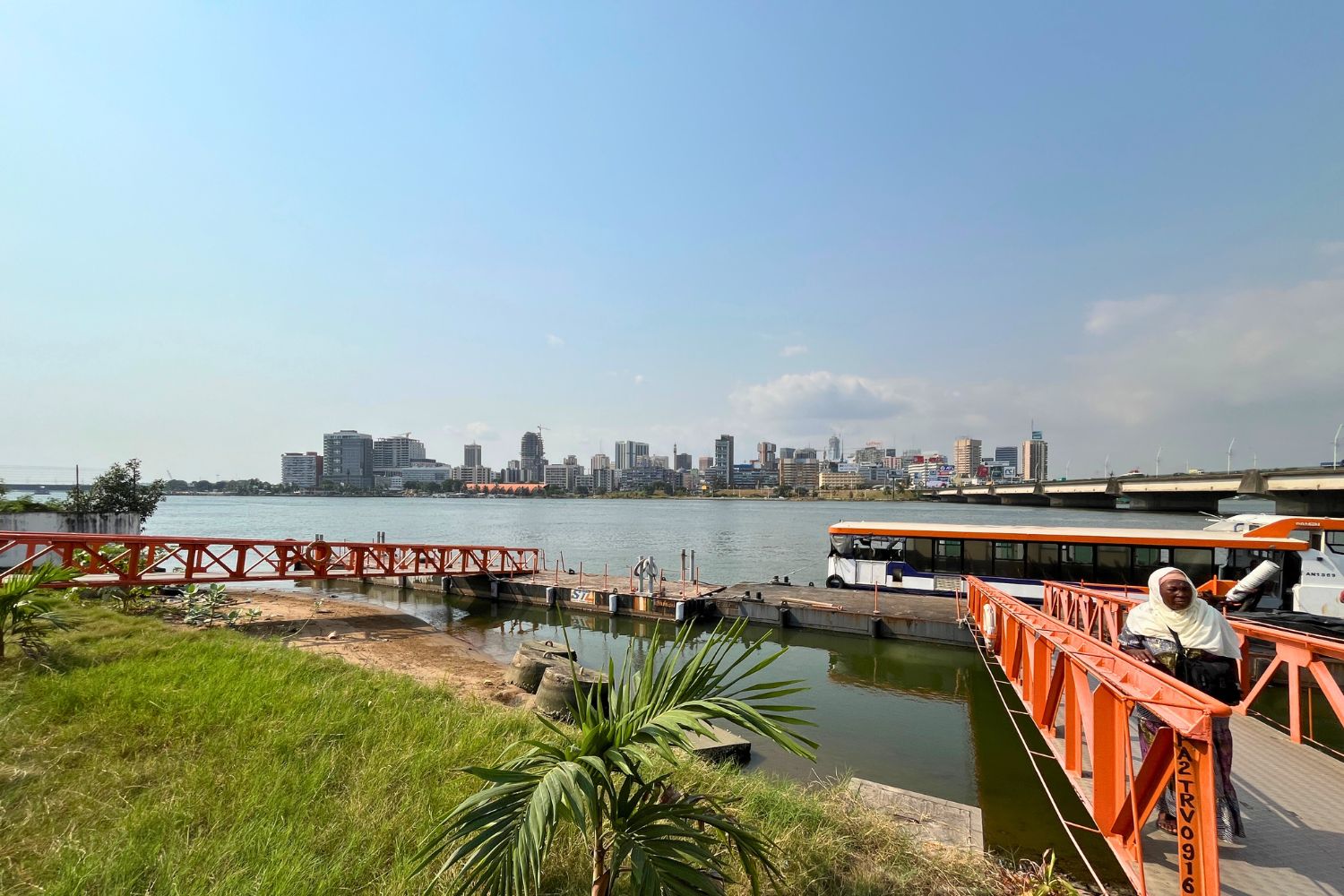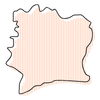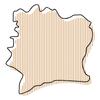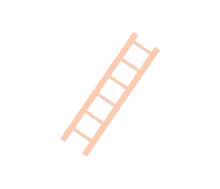Image

Prep Vocab
Dialog
Audio file
SITUATION: Abi just got back from a trip. She is walking in her neighborhood when a friend, Baba, greets her.
BABA: Abi, i ni fama!
ABI: Nse! I ni ce.
BABA: I tun bɛ Ameriki? [1]
ABI: Ayi, n tun tɛ so. N tun bɛ Abidjan.
BABA: À ka di?
ABI: Kosɛbɛ! N terimuso sigilen bɛ yen. N taara tile fila kɛ ale fɛ. [2]
BABA: O ka ɲi. I y'an sama?
ABI: Ɔwɔ! I ka sama bɛ du kɔnɔ.
BABA: I tun bɛ na n'à ye kɛ! [3]
ABI: Hakɛto b'à la! N sɛgɛnnen don. À ka girin. N ma se ka na n'à ye.
BABA: Baasi tɛ! Su kolen, n bɛna tɛmɛ k'à minɛ!
BABA: Abi, it's been a while!
ABI: Nse! Hi.
BABA: You were in America? [1]
ABI: No, I wasn't at home. I was in Abidjan.
BABA: Is it pleasant (that you went there)?
ABI: Definitely! My friend lives there. I went and spent two days at her place. [2]
BABA: That's good. Did you gift us?
ABI: Yes! Your gift is in the courtyard.
BABA: You should have brought it, man! [3]
ABI: My apologies! I'm tired. It's heavy. I wasn't able to bring it.
BABA: No problem! Once night has fallen, I will come and grab it.
ABI: Nse! Hi.
BABA: You were in America? [1]
ABI: No, I wasn't at home. I was in Abidjan.
BABA: Is it pleasant (that you went there)?
ABI: Definitely! My friend lives there. I went and spent two days at her place. [2]
BABA: That's good. Did you gift us?
ABI: Yes! Your gift is in the courtyard.
BABA: You should have brought it, man! [3]
ABI: My apologies! I'm tired. It's heavy. I wasn't able to bring it.
BABA: No problem! Once night has fallen, I will come and grab it.
Grammar Points
- 1) Retrospective marker
tunin non-verbal constructions - 2) The resultative participle
-len(NOTE: This point is also covered later down the road in "Ɲɛnafin") - 3) Retrospective marker
tunin verbal constructions
Lesson
[Video coming soon!]
Vocab
- fama
- absence
- so
- home
- terimuso
- friend
- tile fila
- two days (often used to express "a while")
- ka mɔgɔ sama
- to give sb a gift from one's travels (Lit. "To gift sb")
- sama
- gift (from travels)
- ka na ni X ye
- to bring X
- ka sɛgɛn
- to tire
- girin/gwili
- heavy
- ka se
- to able to
- su
- night
- ka ko [su]
- to fall [night]
- ka tɛmɛ
- to pass (by)
- k'à minɛ
- to grab sth
- -len/nen
- resultative participle ("-ed") [Bambara]
- -nin
- resultative participle ("-ed") [Jula]
- I sigilen bɛ min?
- Where do you live? [Lit. "You seated are where?"]
- I dalen don?
-
Are you lying down? [Lit. "You laid.down it.is?"]
- N ye Musa sigilen fo
- I greeted Musa (who was) seated
- tun
- retrospective marker
- Abi don
- It's Abi
- Abi tun don
- It was Abi
- Musa tun tɛ
- It wasn't Musa
- Abidjan ka jan
- Abidjan is far
- Abidjan tun ka jan
- Abidjan was far
- Abi bɛ Abidjan
-
Abi is in Abidjan
- Abi tun bɛ Abidjan
- Abi was in Abidjan
- Abi ye kalanden ye
- Abi is a student
- Abi tun ye kalanden ye
- Abi was a student
- N bɛ taa Bamakɔ
- I go to Bamako [habitually]
- N tun bɛ taa Bamakɔ
- I would go to Bamako [habitually in the past]
- I tun bɛ na n'à ye
- You should have come with it [Lit. "You were coming with it"]
- N taara Bamakɔ
- I went to Bamako
- N tun taara Bamakɔ
- I had gone to Bamako
- N bɛna taa Bamakɔ
- I will go to Bamako // I am going to go to Bamako
- N tun bɛna taa Bamakɔ
- I was going to go to Bamako
- N ma taa Bamako
- I didn't go to Bamako
- N tun ma taa Bamako
- I hadn't gone to Bamako
- teri
- friend
- teriya
- friendship
- jɛɲɔgɔn
- companion
- somɔgɔw
- family members
- ka taa/taga dugu la
- to travel [Lit. "to go at the land"
- dugutaga
- travel; travels; journey
- ka yaala
- to walk; to stroll; to wander
- tunga
-
abroad; away from home; "adventure"
- N bɛ tunga la
- I am abroad; I am on an adventure (away from home)
- faso
- homeland; home town; motherland [Lit. "father-house"]
- ka bɔ mɔgɔ ye
- to visit a person
- ka (taa) bɔ X
- to (go) visit X [a place]





